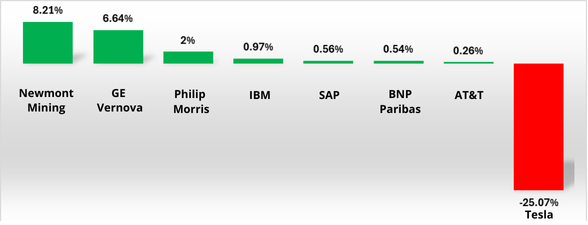In Europe, the IMF also downgraded its economic growth forecasts for the bloc last week, following the global trend of reduced growth amid a climate of policy and trade uncertainty.However, unlike the US, the expected decline is less pronounced.The IMF now forecasts growth of 0.8% in 2025 – a 0.2% decrease from its January 2025 projection. Nonetheless, growth is expected to rebound to 1.2% in 2026, driven by increased private spending and more accommodative fiscal policies in some of Europe’s largest countries, particularly Germany. In the UK, Revolut – Europe’s most valuable start-up – released its annual report last week. The London-based bank doubled its profits to £1 billion while surpassing 50 million customers. The company’s wealth division, which includes stock trading,generated £506 million in 2024 – a fourfold increase on 2023.The trade war between China and the United States, which began with President Trump’s reciprocal tariff announcement on April 2nd, appears to be easing. US Treasury Secretary Scott Bessent has indicated that a trade deal between Beijing and Washington could be reached soon. However, Beijing has pushed back, calling reports of a near agreement “fake news” and insisting that talks will only proceed once the US cancels all unilateral tariff measures. China currently holds a trade surplus of nearly $300billion with the US and accounts for 15% of American exports.Nevertheless, China is in a stronger position to replace its primary US import—agricultural products—with alternatives from other countries, whereas the US faces greater difficulty replacing Chinese imports, which include electronics & processed minerals.






